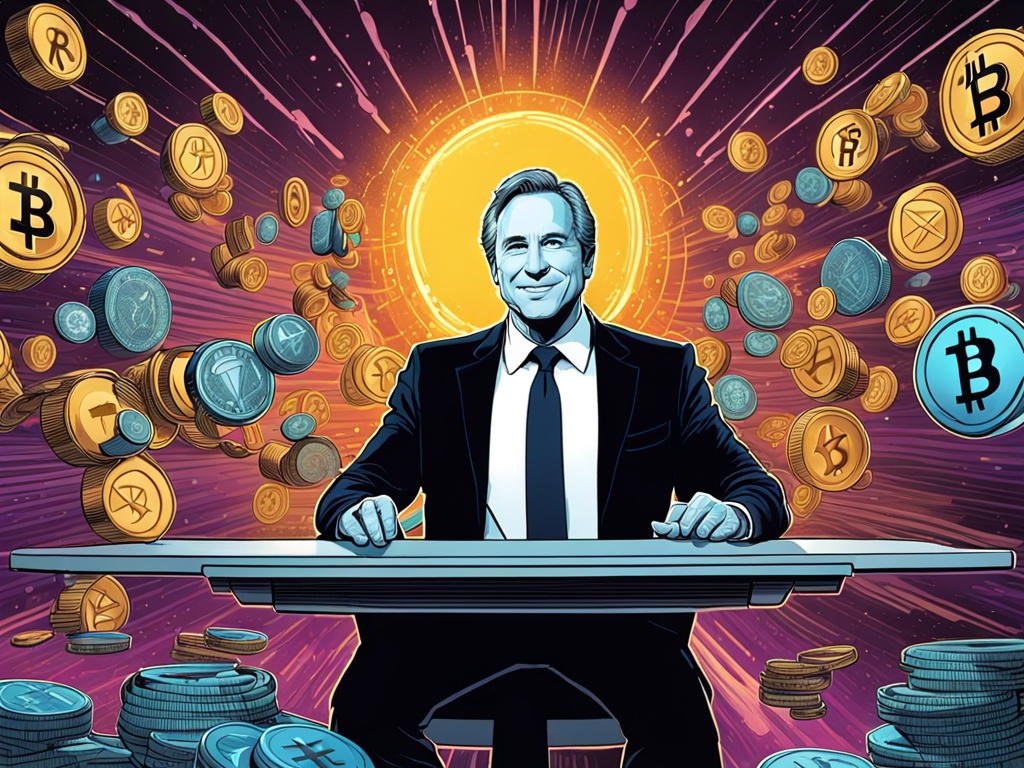How Ripple’s Impact on Politics Could Shape the Crypto Market
Alright, let’s dive into this, my friend! The crypto world is buzzing, and recently, Ripple’s CEO Brad Garlinghouse made waves during an episode of CBS’s "60 Minutes." If you’re considering investing in crypto or just want to understand this space better, this is super relevant. The interplay between crypto, politics, and regulation could really influence market trends moving forward.
Key Takeaways:
- Ripple and crypto firms contributed $144 million to political campaigns.
- Clear regulations are essential for the U.S. to retain its crypto leadership.
- The political landscape is shifting, potentially affecting crypto’s future.
- The recent legal rulings can change how cryptocurrencies are viewed, particularly XRP.
- The media’s portrayal of crypto can influence public perception and policy.
So, y’know, Garlinghouse came out swinging about how Ripple, along with other crypto companies, has poured funds into political action committees (PACs), amounting to a jaw-dropping $144 million! This isn’t just pocket change. This cash flow has effectively swayed elections, particularly helping to elect Democratic senators in key battleground states like Michigan and Arizona. Yeah, he claims they totally had an impact! It’s fascinating when you think about how financial resources can shape political landscapes.
The Regulatory Environment: Why It Matters
But let’s talk turkey about regulations. Garlinghouse made it clear that the crypto industry wants solid “rules of the road.” He argues for regulatory clarity to keep the U.S. at the forefront of the crypto revolution. Right now, there’s a huge debate about how cryptocurrencies should be classified. This ambiguity can lead to some serious issues. If the U.S. government doesn’t step up and issue comprehensive guidelines, we could see companies—and their innovation—pack up and flee to friendlier shores.
Let’s not forget about the ongoing XRP lawsuit. Garlinghouse doesn’t believe XRP should be labeled as a security. He confidently stated he’d never even considered that XRP fell under that classification. A recent ruling by a judge even favored Ripple on this matter! The implications here are immense. If XRP is confirmed as not being a security, it could open up a floodgate for institutional investments, propelling its value even higher.
The Crypto Community’s Response
Interestingly, Ripple’s pushback against what they considered a lackluster portrayal of crypto on CBS was echoed by others in the crypto space, like Perianne Boring, the CEO of The Digital Chamber. She called the segment a "missed opportunity" for meaningful dialogue, suggesting it framed crypto advocacy negatively, almost like a conspiracy against democracy.
She argued that crypto isn’t just a speculative asset; it’s a tech evolution comparable to the internet’s early days. It’s about freedom of speech and rights that, when supported correctly, can lead to innovation rather than suppression and misunderstandings. The blockchain is transparent, offering an immutable record of transactions. If the narrative out there is skewed, it could sway public opinion and, subsequently, policy decisions that could affect the cryptocurrency market.
What This Means for You as an Investor
Now, let’s get practical. What does all this mean for us as potential investors?
-
Stay Informed: With political contributions steering policy, following political trends and election outcomes could give you insights into how regulations might change in the crypto sector.
-
Watch the Legal Battles: The Ripple case is huge; if XRP wins, it might set a precedent that positively influences how other cryptocurrencies are treated. This could add legitimacy to the market and boost prices.
-
Evaluate Regulatory Changes: Keep an eye on upcoming legislation like the Fit 21 bill that aims to reshape regulatory responsibility. Understand how these changes might impact the coins you’re interested in.
- Engage with the Community: Sometimes, the best insights come from discussions in crypto forums, Twitter, or meetups. Hearing different perspectives could illuminate new angles you might not have considered.
Wrapping Up with Some Thoughts
So, my fellow crypto enthusiast, what’s the bottom line? The intersection of crypto and politics is more than just talk—it’s about the future of our investment landscape and the regulations that might come down the pipeline. As the dust settles from all this media coverage and regulatory discussions, it’ll be intriguing to see how the crypto market reacts. The wild world of crypto keeps us on our toes!
Here’s a thought to chew on: If the political landscape continues to support innovation in the crypto space, could we see a future where digital currencies become a mainstream asset class, just like stocks and bonds? I’m all in on that future, what about you?





 By
By

 By
By
 By
By
